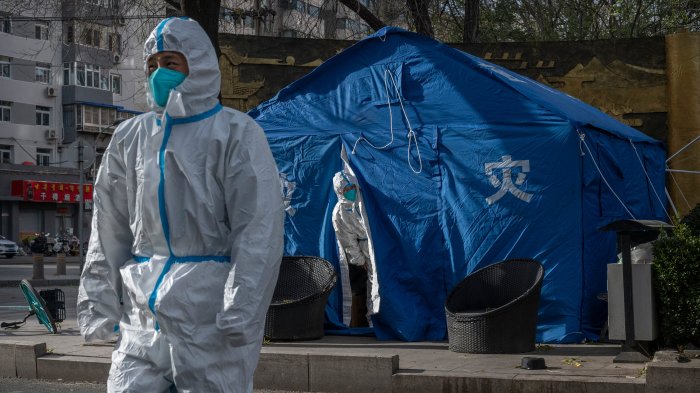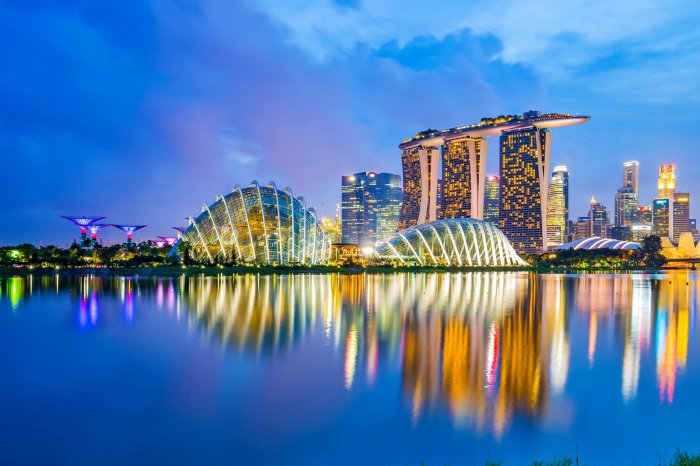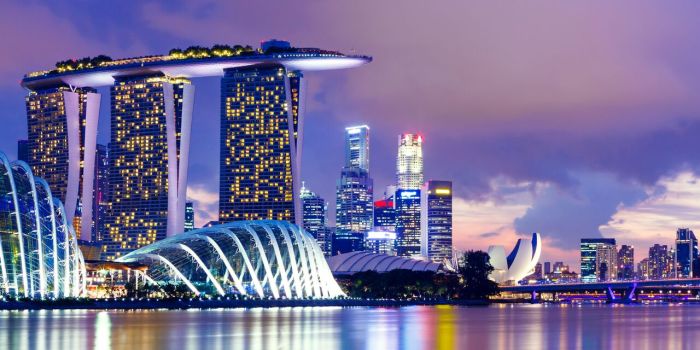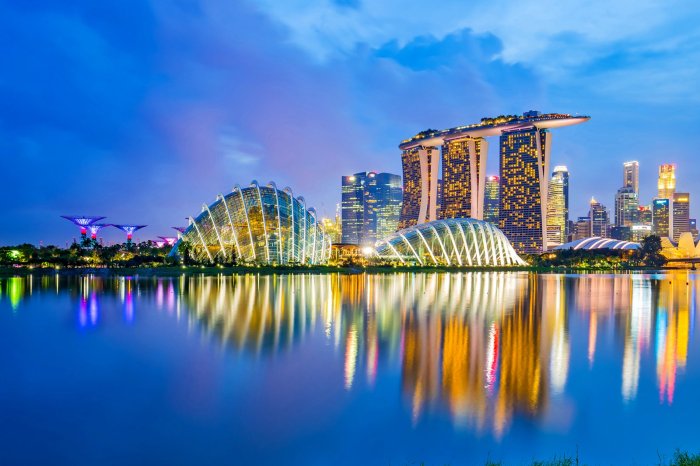COVID travel to Southeast Asia presents a unique landscape of evolving restrictions and safety considerations. Navigating the complex web of vaccination requirements, testing protocols, and health precautions is crucial for a safe and enjoyable trip. This comprehensive guide delves into the intricacies of traveling to this captivating region during the pandemic, offering insights into travel restrictions, health safety measures, the impact on tourism, financial considerations, and exciting travel options.
From the bustling streets of Bangkok to the serene beaches of Bali, this guide empowers you to make informed decisions and experience the beauty of Southeast Asia responsibly.
This exploration examines the diverse travel regulations across Southeast Asian countries, highlighting the varying entry requirements for different nationalities. It also analyzes the evolving health and safety protocols, including the availability of testing facilities and recommended precautions. Furthermore, the economic impact of COVID-19 on the tourism sector and the recovery strategies employed by different nations are explored. The guide also addresses travel insurance, financial considerations, and the diverse travel experiences awaiting you in the region, including cultural insights and popular tourist attractions.
Southeast Asian Travel Restrictions and Regulations Post-COVID

Navigating travel in Southeast Asia post-COVID-19 has been a dynamic process. Initially, strict lockdowns and border closures were commonplace. As the pandemic subsided, travel restrictions gradually eased, but countries maintained different approaches to entry requirements. This evolution continues, influenced by local case counts and global health trends. Understanding the current rules is crucial for planning a trip and ensuring a smooth journey.
Current COVID-19 Travel Restrictions in Southeast Asia
The current landscape of travel restrictions in Southeast Asia is characterized by a significant relaxation from the peak of the pandemic. However, each nation maintains its own specific protocols for entry. These protocols often involve vaccination status, testing requirements, and potential quarantine periods. It’s essential to check the specific requirements for each destination prior to travel.
Entry Requirements for Specific Southeast Asian Countries
Entry requirements vary considerably between countries. For example, Thailand might require proof of vaccination while Vietnam might have a more relaxed approach. Indonesia may require a negative PCR test within a certain timeframe, whereas the Philippines might have different testing requirements. The nuances in these policies highlight the importance of meticulous research for each planned destination.
Comparison of Travel Restrictions Across Southeast Asian Nations
A comparison of travel restrictions reveals a spectrum of policies. Some countries maintain more stringent rules, particularly for travelers from high-risk regions, while others have opted for a more open approach. This variance reflects the diverse approaches to managing the pandemic and its aftermath. It is critical to check the latest advisories from the relevant embassies and health organizations for the most up-to-date information.
Evolution of Travel Restrictions Over Time
The evolution of travel restrictions demonstrates a clear trend of easing restrictions. Initially, border closures were widespread. Gradually, countries began to allow vaccinated travelers with specific testing requirements. This evolution has been influenced by the changing global epidemiological situation and the development of effective vaccines. The ongoing monitoring of the situation will continue to influence future adjustments.
Recent Changes to Entry Policies for Various Nationalities
Recent changes in entry policies often reflect global health trends. For example, a surge in cases in a particular region might lead to stricter requirements for travelers from that area. Conversely, decreasing case numbers could lead to a relaxation of entry policies. These changes demonstrate the dynamic nature of travel regulations and the importance of staying informed about the latest updates.
Key Travel Requirements for Popular Southeast Asian Destinations
| Country | Vaccination Status | Testing Requirements | Entry Restrictions |
|---|---|---|---|
| Thailand | Proof of vaccination (often recommended, not mandatory for all nationalities) | Pre-departure or on-arrival PCR/Rapid Antigen test, depending on origin | Potential quarantine in some cases, especially for travelers from high-risk areas |
| Vietnam | Proof of vaccination (often recommended, not mandatory for all nationalities) | Pre-departure or on-arrival PCR/Rapid Antigen test, depending on origin | Potential quarantine in some cases, especially for travelers from high-risk areas |
| Indonesia | Proof of vaccination (often recommended, not mandatory for all nationalities) | Negative PCR test within a certain timeframe before arrival | Potential quarantine in some cases, especially for travelers from high-risk areas |
Health and Safety Considerations
Southeast Asia, a region renowned for its vibrant culture and breathtaking landscapes, continues to welcome travelers. However, navigating the post-COVID landscape requires careful consideration of health and safety protocols. This section delves into essential precautions and resources to ensure a safe and enjoyable trip.Understanding the evolving health landscape is paramount for travelers. The COVID-19 pandemic has profoundly impacted global health systems, and Southeast Asia, like other regions, has witnessed changes in testing, treatment, and preventative measures.
This requires proactive measures on the part of visitors.
Health Precautions for Travelers
Essential health precautions are crucial for a safe trip. Maintaining vigilance against infection, particularly during the travel period, is vital. This involves consistent hand hygiene, wearing masks in crowded areas, and practicing social distancing whenever possible. Staying informed about local health advisories and guidelines is equally important.
- Hand Hygiene: Frequent handwashing with soap and water or using hand sanitizer is a cornerstone of infection prevention. Carry hand sanitizer with you and use it regularly, especially before eating and after touching public surfaces.
- Mask-Wearing: While mask mandates may vary across Southeast Asian countries, consider wearing a mask in public spaces, particularly in crowded areas or on public transport. This helps mitigate the spread of respiratory illnesses.
- Social Distancing: Maintaining a safe distance from others is crucial, especially in crowded environments. This practice reduces the risk of exposure to infectious diseases.
- Travel Insurance: Comprehensive travel insurance that covers medical expenses, including potential COVID-19-related treatments, is highly recommended.
- Vaccination Status: Ensure your vaccination status is up-to-date, especially with any recommended vaccines for the region.
COVID-19 Testing Availability
The availability of COVID-19 testing facilities varies across Southeast Asian countries. Some countries offer readily available testing in major cities and tourist areas, while others might require pre-booking or specialized arrangements. This variation necessitates careful planning.
Post-pandemic travel to Southeast Asia is looking fantastic, but honestly, I’ve been dreaming of a relaxing soak in one of the best hot springs in Colorado. Best hot springs in Colorado offer a fantastic escape, and I’m hoping this will inspire my next Southeast Asian adventure. Hopefully, the rejuvenating experience will leave me feeling refreshed enough for my Southeast Asian trip!
- Testing Options: Rapid antigen tests and PCR tests are often available. Rapid antigen tests are typically quicker but less accurate than PCR tests.
- Testing Locations: Hospitals, clinics, and private testing centers usually provide testing services. Be sure to inquire about the required documentation and procedures in advance.
- Testing Costs: The cost of COVID-19 testing varies by country and the type of test. Confirm pricing and procedures before your trip to avoid unexpected expenses.
Potential Risks and Safety Levels, Covid travel to southeast asia
Travelers should acknowledge potential risks associated with visiting Southeast Asia during the COVID-19 pandemic. While the situation is continuously improving, localized outbreaks can still occur. The risk level varies significantly between countries.
- Localized Outbreaks: The possibility of local outbreaks remains, albeit less frequent than during the pandemic’s peak. Monitoring local health advisories is critical.
- Risk Factors: Individual risk tolerance and health conditions play a role in assessing the overall risk. Pre-existing health conditions may increase vulnerability to infection.
- Destination Safety: Countries with robust healthcare systems and consistently low infection rates generally present lower risks.
Healthcare Access and Quality Comparison
Comparing healthcare access and quality in Southeast Asian countries is important for informed decision-making. Consider the availability of healthcare facilities, testing options, and insurance recommendations.
| Country | Healthcare Facilities | Testing Availability | Insurance Recommendations |
|---|---|---|---|
| Thailand | Excellent, extensive network of hospitals and clinics | Widely available in major cities | Comprehensive coverage, including medical evacuation |
| Singapore | High-quality, well-equipped hospitals and clinics | Readily available, especially in designated testing centers | Robust coverage for pre-existing conditions and medical emergencies |
| Vietnam | Growing network of hospitals and clinics, especially in urban areas | Increasing availability in major cities and tourist destinations | Consider comprehensive coverage that addresses potential medical complications |
| Indonesia | Varying quality and availability, more concentrated in major cities | Testing facilities available, but may be more limited in rural areas | Crucial to have a plan for medical expenses and possible evacuation |
| Philippines | Good availability in urban areas, but potentially limited in rural areas | Testing services generally available in major cities | Essential to have a comprehensive policy covering medical emergencies |
Impact on Tourism and Economy: Covid Travel To Southeast Asia
Southeast Asia, a vibrant tapestry of cultures and landscapes, experienced a profound shift in its tourism sector following the COVID-19 pandemic. The once-thriving industry faced unprecedented challenges, impacting businesses, local communities, and national economies. The recovery has been uneven, with some countries rebounding more quickly than others, and long-term effects remain to be fully understood.
Impact on the Tourism Sector
The pandemic drastically reduced international travel, halting the flow of tourists to Southeast Asian destinations. This sudden decline had a devastating effect on hotels, restaurants, tour operators, and other businesses reliant on tourism revenue. Many businesses struggled to maintain operations, leading to job losses and economic hardship for local communities.
Economic Consequences for Businesses and Local Communities
The tourism sector’s downturn had widespread economic repercussions. Businesses, from small family-run restaurants to large hotel chains, experienced significant revenue losses. Reduced employment opportunities and income led to increased poverty and social challenges in many communities. For example, in Thailand, the livelihoods of many fishing villages, which heavily depend on tourism-related activities, were severely affected.
Challenges Faced by the Tourism Industry
The tourism industry faced numerous challenges during and after the pandemic. These included fluctuating travel restrictions, health concerns, and a shift in consumer behavior. The need for increased health and safety protocols and the rise of online travel platforms also presented new complexities. Many businesses had to adapt to these changing circumstances, requiring significant investments in new technology and procedures.
Post-pandemic, Southeast Asian travel is buzzing again, with fantastic destinations opening up to visitors. Thinking about a luxurious stay before or after your Southeast Asian adventures? Consider a pre-trip stopover in Culver City, Los Angeles at the Shay Hotel , known for its stylish rooms and great location. This will allow you to fully immerse yourself in the vibrant culture of the region without sacrificing your travel comfort.
Whether you’re a seasoned traveler or just starting out, a luxurious stop like this is worth the detour before or after your Southeast Asian journey.
Strategies Adopted by Southeast Asian Countries to Stimulate Tourism
Various Southeast Asian countries implemented strategies to revive their tourism sectors. These strategies often involved promoting domestic tourism, offering attractive packages, and enhancing safety measures. For example, Malaysia introduced attractive visa policies to encourage foreign visitors. Thailand, on the other hand, focused on marketing its unique cultural experiences. These initiatives, while showing signs of success, were often hampered by lingering concerns over the pandemic.
Comparison of Economic Recovery Rates in Different Southeast Asian Countries
The economic recovery rates in Southeast Asian countries varied considerably. Countries with strong pre-pandemic economies and robust government support generally showed faster recovery rates. For instance, Singapore, known for its advanced infrastructure and economic resilience, rebounded relatively quickly. Countries with a higher dependence on tourism, like the Philippines, experienced a slower recovery.
Long-Term Effects on the Tourism Industry in Southeast Asia
The pandemic has likely reshaped the tourism industry in Southeast Asia. The increased importance of online booking platforms and the demand for flexible travel options are just a couple of the long-term changes. The need for more sustainable and resilient tourism models is becoming increasingly apparent, focusing on community involvement and environmental preservation.
Tourism Revenue Trends
| Country | Pre-Pandemic Revenue (USD Millions) | Post-Pandemic Revenue (USD Millions) | Recovery Rate (%) |
|---|---|---|---|
| Singapore | 30,000 | 25,000 | 83.3% |
| Thailand | 45,000 | 30,000 | 66.7% |
| Philippines | 20,000 | 12,000 | 60% |
| Malaysia | 25,000 | 18,000 | 72% |
| Indonesia | 35,000 | 22,000 | 62.9% |
Note: Figures are estimated and may vary depending on the source.
Travel Insurance and Financial Considerations
Southeast Asia, with its vibrant cultures and stunning landscapes, offers a captivating travel experience. However, unforeseen circumstances, including potential health issues or travel disruptions, can significantly impact your trip’s financial well-being. Therefore, robust travel insurance is crucial for a worry-free adventure.Comprehensive travel insurance provides financial protection against various unforeseen events, especially critical during the COVID-19 era. It safeguards your investment and peace of mind during your Southeast Asian journey.
Importance of Travel Insurance
Travel insurance is essential to protect against unexpected medical expenses, trip cancellations, and other disruptions. It provides financial support in case of illness or injury, covering medical treatments, repatriation, and other associated costs. The unpredictable nature of the pandemic underscores the importance of having this safety net. Furthermore, it offers protection against unforeseen events like natural disasters or political unrest.
Types of Coverage Offered by Travel Insurance Policies
Travel insurance policies typically cover medical emergencies, trip cancellations or interruptions, lost luggage, and personal liability. Specific coverage varies depending on the policy provider and the chosen plan. Policies often include coverage for pre-existing conditions, although exclusions might apply. In the context of COVID-19, some policies specifically address pandemic-related disruptions. Crucially, ensure the policy details clearly define what circumstances are covered.
Financial Implications of Potential Health Issues or Travel Disruptions
The cost of medical treatment abroad, especially for serious illnesses, can be substantial. Unexpected travel disruptions, like flight cancellations or border closures, can lead to significant financial losses, impacting accommodation, transportation, and activities. The unpredictability of COVID-19-related restrictions necessitates comprehensive insurance. In addition, the value of your trip can be compromised by disruptions, including missed experiences and lost time.
Post-pandemic travel to Southeast Asia is finally buzzing, but I’ve been daydreaming about something completely different. Imagine the stunning landscapes of the Zagros Mountains in Kurdistan, hiking the Zagros hiking trail kurdistan. While Southeast Asia beckons with its vibrant culture and delicious food, the thought of challenging myself with a trek through this rugged terrain is incredibly appealing.
I guess I’ll just have to prioritize my wanderlust and plan a trip to Southeast Asia, once the travel restrictions ease up even more.
Examples of Travel Insurance Policies Covering COVID-19 Related Expenses
Some travel insurance providers offer specific coverage for COVID-19-related expenses, including medical treatments, quarantine costs, and trip cancellations due to pandemic-related travel restrictions. However, the specifics of coverage vary. Be sure to thoroughly review policy terms and conditions before purchasing. Check if the policy covers COVID-19 testing costs or expenses incurred during quarantine.
Costs Associated with Travel
The cost of travel in Southeast Asia varies significantly across countries. Accommodation costs, transportation options, and activities contribute to the overall expense. Budgeting effectively is essential to enjoy the destination without overspending. Consider the cost of visas, vaccinations, and other pre-trip requirements.
Financial Considerations for Travelers Visiting Southeast Asia
- Currency Exchange Rates: Understanding the exchange rates between your home currency and the local currency is vital. Exchange rates can fluctuate, so plan accordingly. Exchange rate fluctuations can significantly impact the cost of your trip.
- Accommodation Options: Southeast Asia offers a range of accommodation options, from budget-friendly hostels to luxury resorts. Consider your budget and preferences when selecting accommodation. The cost of accommodation can vary considerably depending on the location and type of accommodation.
- Transportation Costs: Southeast Asia offers diverse transportation options, including buses, trains, and flights. Compare costs and choose the most suitable option for your trip. Transportation costs can vary based on the mode of transport and the distance covered.
- Activities and Experiences: Southeast Asia offers numerous cultural and natural attractions. Research and plan activities based on your interests and budget. Factor in the cost of entry fees, tours, and other experiences. The cost of activities can vary significantly depending on the type and location.
Cost Comparison of Travel in Different Southeast Asian Countries
| Country | Accommodation Costs (USD) | Transportation Costs (USD) | Activities Costs (USD) |
|---|---|---|---|
| Thailand | $20-$100 | $5-$30 | $10-$50 |
| Vietnam | $20-$80 | $5-$25 | $10-$40 |
| Indonesia | $15-$75 | $5-$20 | $10-$45 |
| Philippines | $15-$60 | $5-$25 | $10-$40 |
| Cambodia | $10-$50 | $3-$15 | $5-$30 |
Note: These figures are estimates and can vary based on the season, type of accommodation, and activities chosen.
Travel Options and Experiences
Southeast Asia beckons with a vibrant tapestry of cultures, histories, and natural wonders. From bustling cityscapes to serene beaches, this region offers a diverse range of travel experiences for every type of traveler. This section explores the myriad of travel options available, highlights popular destinations, and details the cultural and historical significance of the region. It also Artikels precautions travelers should take and showcases the most popular tourist attractions.The region’s rich heritage, coupled with its stunning landscapes, makes it a popular choice for tourists worldwide.
Whether you’re seeking adventure, relaxation, or cultural immersion, Southeast Asia delivers. Understanding the various travel options and precautions will enhance your journey, ensuring a safe and fulfilling experience.
Different Travel Options
Southeast Asia offers a spectrum of travel options to suit various preferences and budgets. Independent travelers can explore destinations at their own pace, using budget airlines and local transportation. For those seeking a more structured experience, guided tours or packaged trips provide a curated itinerary. Cruises are also popular, allowing exploration of multiple destinations within a single trip.
Homestays and community-based tourism initiatives provide opportunities to immerse in local life and culture.
Popular Destinations and Activities
Popular destinations in Southeast Asia include vibrant cities like Bangkok (Thailand), Ho Chi Minh City (Vietnam), and Singapore. Island paradises like Bali (Indonesia), the Philippines, and the beaches of Thailand draw countless visitors. Activities range from exploring ancient temples and historical sites to indulging in water sports, wildlife encounters, and delicious cuisine.
Cultural and Historical Aspects
Southeast Asia’s history is rich and diverse, encompassing empires, kingdoms, and vibrant cultures. Each country boasts unique traditions, languages, and artistic expressions. Understanding the historical context of a destination enhances the travel experience. For example, Angkor Wat in Cambodia is a testament to the Khmer Empire’s grandeur, while the temples of Bagan in Myanmar offer a glimpse into ancient Buddhist traditions.
Precautions for Travelers
Travelers should be aware of local customs and traditions. Respecting local etiquette is essential for a positive and harmonious experience. Health and safety precautions, such as vaccinations and necessary travel insurance, should be taken seriously. Staying informed about local laws and regulations, and being cautious of personal belongings, are also vital aspects of responsible travel.
Popular Tourist Attractions
Some of the most popular tourist attractions include Angkor Wat (Cambodia), the floating markets of Southeast Asia, the beaches of Thailand, the rice paddies of Vietnam, and the vibrant street markets. These attractions provide a glimpse into the unique beauty and cultural heritage of the region.
Table: Popular Tourist Activities and Experiences
| Country | Activities | Experiences | Precautions |
|---|---|---|---|
| Thailand | Beaches, temples, cooking classes, elephant encounters | Relaxation, spiritual experiences, cultural immersion | Research elephant sanctuaries, respect local customs |
| Vietnam | Hanoi Old Quarter, Halong Bay cruises, Mekong Delta tours | Cultural exploration, natural beauty, historical insights | Be mindful of local transportation, research travel agencies |
| Indonesia (Bali) | Rice paddies, temples, yoga retreats, surfing | Spiritual enrichment, natural beauty, adventure | Be aware of scams, respect local traditions |
| Philippines | Beaches, diving, hiking, exploring islands | Relaxation, adventure, natural beauty | Follow safety guidelines for water activities |
| Cambodia | Angkor Wat, Siem Reap, temples, exploring history | Historical exploration, cultural immersion, spiritual experiences | Respect religious sites, stay hydrated |
Last Point
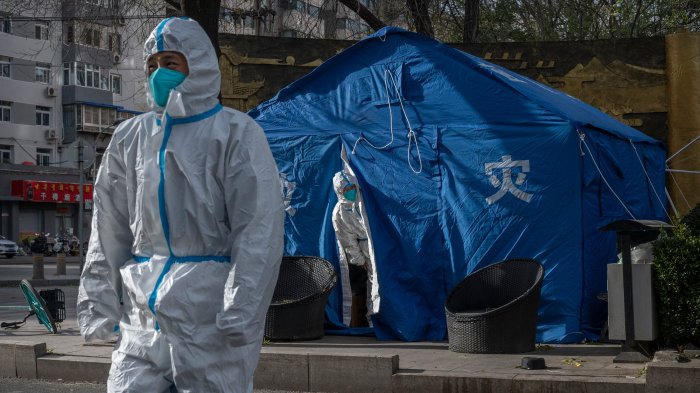
In conclusion, COVID travel to Southeast Asia requires careful planning and consideration. This guide has provided a framework for understanding the nuanced travel restrictions, safety protocols, and economic impact. By acknowledging the evolving nature of these factors, travelers can navigate the region safely and responsibly, experiencing the rich culture, stunning landscapes, and vibrant energy of Southeast Asia. The insights shared in this guide will help you make informed decisions and enjoy your trip to this beautiful part of the world.
